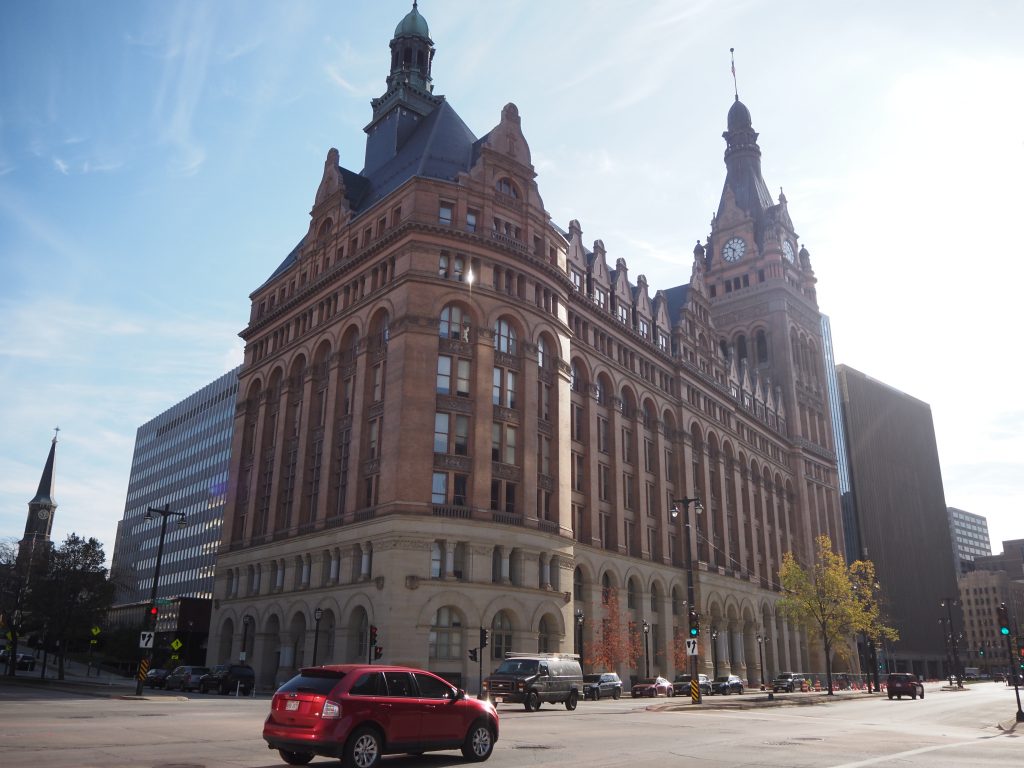Policy Forum Says City Successfully Navigated Budget Crisis, Only To Find Future Problems
New analysis suggests city will need cut spending in future years.
The City of Milwaukee has turned a fiscal crisis into an opportunity, but it could again veer toward crisis if it doesn’t act prudently.
That’s the consensus of the Wisconsin Policy Forum‘s (WPF) annual review of the city’s proposed budget.
A 2022 report warned that Milwaukee faced “untenable budget cuts” without state law changes to the city’s allowed revenue and pension structure. A city analysis identified up to 1,300 layoffs might be necessary.
Act 12, the 2023 sales tax and shared revenue, provided the city with a major new revenue source through a 2% sales tax. It also shifted new hires into the state pension system.
Most significantly, according to the latest WPF budget analysis, it created a “window of opportunity” for the city to find more efficiencies in service delivery that could reduce costs without compromising quality.
And the city needs to make those changes, says the 20-page report.
“Milwaukee’s challenges, however, are beginning to slowly return, starting with a massive increase in pension payments for the city’s existing obligations and the added mandates in Act 12 that aim to strengthen the city’s retirement system. Wages and benefits for employees are rising, helping to lower vacancies but also raising the city’s labor costs,” says the report.
The city is facing a $100 million structural budget deficit for 2026. Mayor Cavalier Johnson has proposed covering the gap with a variety of fee and tax increases, reserve withdrawals and departmental changes.
However, a structural deficit is expected to persist in future years. Costs are projected to rise faster than the city’s revenue streams will grow. Sales tax collections could also plummet in a recession.
“Costs for wages, pension benefits and infrastructure will continue to rise. The portion of the city’s property tax used for operations is currently limited under state law to a rate of growth well below the current rate of inflation. Expenses such as health care that have been under control in recent years could start to rise once again. In the near term, the city is unlikely to gain any new tools as sizable as those in Act 12,” says the report. “As a result, city leaders will likely have to identify efficiencies, structural changes, or partnerships with other local governments that could help to absorb these future demands.”
The report identifies five key takeaways to understand the city’s proposed 2026 budget: revenue from Act 12 has been a “ray of light,” pension costs continue to strain city finances, the city heavily drawing on reserve funds in a way that isn’t reckless, but can’t continue forever, wheel taxes and other fees would be increased and, finally, that the city’s long-term infrastructure needs are greater than its current and likely future ability to fund them.
“How the city will meet the full return of all of these challenges in the future is not entirely clear. In the short term, city officials certainly have tools that they can employ as stopgaps, with the foremost being the $92 million balance in Milwaukee’s pension reserve fund. However, like all reserves, this is only a one-time solution. In the longer term, the city will have to find ongoing sources of both revenue and cost savings to balance its budget,” says the report.
It recommends that the city explore potential shared-service efficiencies identified in a 2023 report. A similar cost-saving report was also funded by the Greater Milwaukee Committee for the city and previously backed by WPF.
The report was prepared by WPF President Jason Stein, senior research associates Ashley Fisher and Tyler Byrnes and past president Rob Henken.
“We hope this budget brief can serve both as a testament to the gains made and the pressing need to keep making progress on the city’s still formidable challenges moving forward,” conclude the authors.
The Common Council is scheduled to vote on budget adoption at its Nov. 7 meeting.
Legislation Link - Urban Milwaukee members see direct links to legislation mentioned in this article. Join today
If you think stories like this are important, become a member of Urban Milwaukee and help support real, independent journalism. Plus you get some cool added benefits.
More about the 2026 Milwaukee Budget
- When Democracy Delivers an Answer You Don’t Like, You Don’t Get to Redefine Democracy - Ald. Peter Burgelis - Dec 13th, 2025
- Entire Council Overrides Every Budget Veto by Mayor Johnson - Jeramey Jannene - Nov 25th, 2025
- Op Ed: Why the Common Council’s Amended Budget is Good Policy for Milwaukee - Alds. Marina Dimitrijevic and Russell W. Stamper, II - Nov 20th, 2025
- Milwaukee DSA Calls on Common Council to Overrule Mayor’s Veto of 4% Worker Raises - Milwaukee Democratic Socialists of America - Nov 20th, 2025
- Miffed Mayor Issues 7 Budget Vetoes - Jeramey Jannene - Nov 18th, 2025
- What’s In the 44 Footnotes Added to Milwaukee’s Budget? - Jeramey Jannene - Nov 14th, 2025
- Common Council adopts amended 2026 City budget - Ald. Marina Dimitrijevic - Nov 7th, 2025
- Council Marks Up Mayor’s 2026 Budget, Adds Services, Pay Raises - Jeramey Jannene - Nov 7th, 2025
- Committee Amends 2026 City Budget, Prioritizes Neighborhood Investment Citywide - Ald. Marina Dimitrijevic - Nov 3rd, 2025
- City Hall: Council Spends More Than Nine Hours Debating Budget Amendments - Jeramey Jannene - Oct 31st, 2025
Read more about 2026 Milwaukee Budget here























Maybe our cavalier mayor & his cronies should offer to give back just 5% of the 15% money grab they treated themselves to after Act 12 in a goodwill effort to help the perennially beleaguered city budget.
And part of that money could settle the police contract.